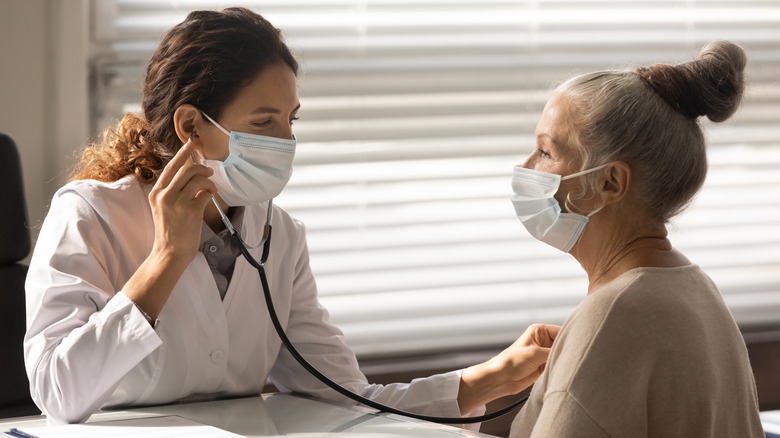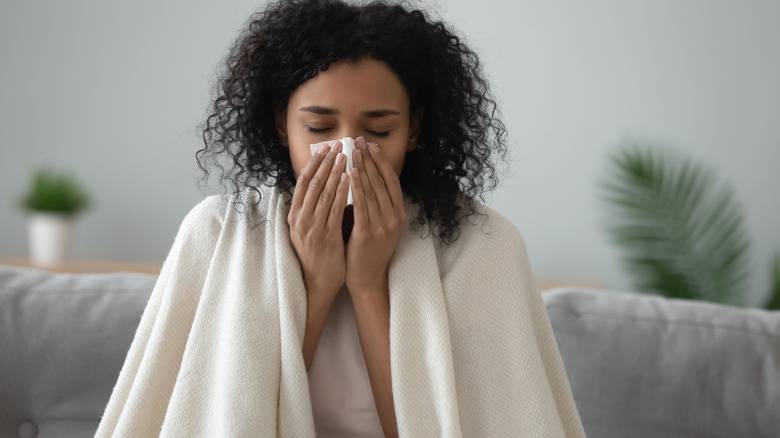Does The COVID-19 Omicron Variant Have Any New Symptoms?
The World Health Organization (WHO) has identified the latest variant of COVID-19, named Omicron. The strain, which was discovered in South Africa, has been deemed a variant of concern. As of this writing, cases have been reported in the Netherlands, Australia, Italy, Denmark, Britain, Israel, Hong Kong, and Canada, among others, according to Reuters.
This newest variant is sparking unease because it could be more transmissible than the Delta variant. In addition, the strain has an unusual genetic profile that has an "unprecedented sampling" of mutations experts have not seen in other variants, which has them concerned. These changes might also mean that omicron is immune to protection provided by COVID1-19 vaccines. These unknowns make it hard to predict just how omicron will impact the public. "The mutations could make it worse or the mutations could make it more benign," immunologist and founder of U.S. therapeutics company Centivax Jacob Glanville told Financial Times.
Known symptoms
While there is still much to learn about omicron, the World Health Organization (WHO) reports that there is no reason to believe that the symptoms of this variant will be any different from any other strains of COVID-19. That being said, the organization notes that the first reported cases were among young people who tend to have milder symptoms of COVID-19. Symptoms of COVID-19 may include fever, chills, cough, shortness of breath, headache, a runny nose, and the loss of taste or smell, per the Centers for Disease Prevention and Control.
The WHO went on to say that it might take weeks to learn how serious omicron is. COVID-19 can cause severe disease or death — especially in those considered more vulnerable. Furthermore, evidence shows that individuals who have previously had COVID-19 could still become infected with omicron. The organization is working with researchers to gain a better understanding of the strain. Until more is known, the WHO suggests people practice the same actions to prevent the spread of omicron as they do any other variants of coronavirus that include social distancing, wearing a mask, coughing or sneezing into elbows, and washing hands frequently.


